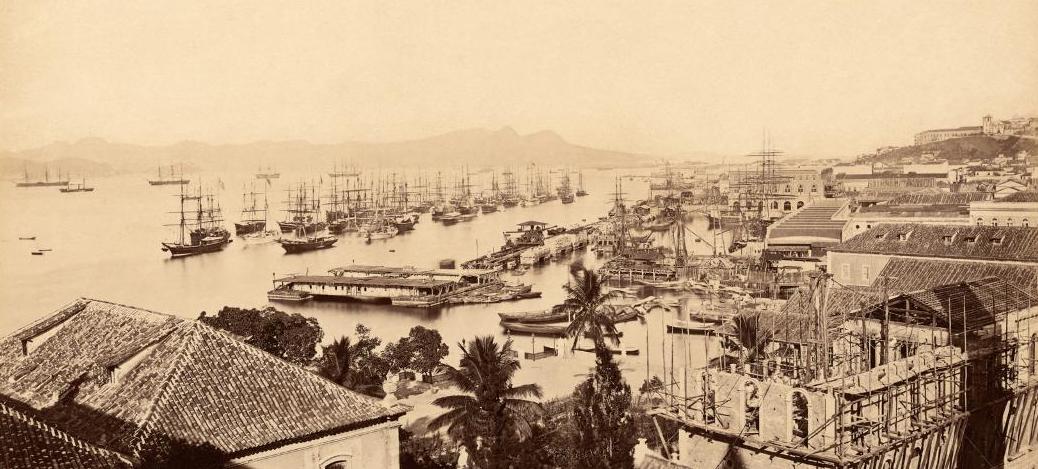The Ottoman Tanzimat in Practice
with Cengiz Kırlı
hosted by Chris Gratien
Download the episode
Within Anglophone historiography, the Tanzimat period is conventionally represented as an era of centralizing reforms emanating from the imperial center that represent a trend often labeled as "modernization" or "Westernization." Less attention has been given to what these administrative changes meant in practice and how they were carried out in the different provinces of the Ottoman Empire. In this episode, Cengiz Kırlı discusses his work on various facets of the Tanzimat and its implementation, offering a preview of his new Turkish-language monograph on the "invention of corruption" in the Ottoman Empire and examining the interplay of local and imperial power during an the early Tanzimat period in the Balkans. (This podcast refers to visuals available below)
Stream via Soundcloud
 |
Cengiz Kırlı is an associate professor at the Ataturk Institute for Modern Turkish History, Boğaziçi University. His research mainly focuses on mid-nineteenth century Ottoman social history. (see academia.edu)
|
 |
Chris Gratien holds a Ph.D. from Georgetown University's Department of History. His research focuses on the social and environmental history of the Ottoman Empire and the modern Middle East. (see academia.edu) |
CREDITS
Episode No. 215
Release date: 5 December 2015
Location: Boğaziçi University
Editing and production by Chris Gratien
Musical excerpt Istanbul'dan Ayva Gelir Nar Gelir - Azize Tozem and Sari Recep
Additional sound excerpt Boş Araba (recorded by Chris Gratien)
Images courtesy of Cengiz Kırlı
Additional thanks to Seçil Yılmaz
SELECT BIBLIOGRAPHY
Kuehn, Thomas. Empire, Islam, and Politics of Difference Ottoman Rule in Yemen, 1849-1919. Leiden: Brill, 2011.
Kırlı, Cengiz. Yolsuzluğun icadı: 1840 Ceza kanunu, iktidar, ve bürokrasi. İstanbul: Verita, 2015.
“Tyranny Illustrated: From Petition to Rebellion in Ottoman Vranje,” New Perspectives on Turkey, no: 53, Fall 2015, (Forthcoming 2015).
______. “Coffeehouses: Public Opinion in the Nineteenth-Century Ottoman Empire,” in Public Islam and the Common Good, Armando Salvatore and Dale F. Eickelman, eds (Brill, 2004), 75-96.
Köksal, Yonca. Local Intermediaries and Ottoman State Centralization: A Comparison of the Tanzimat Reforms in the Provinces of Ankara and Edirne, 1839-1878. 2002.
Inalcik, Halil. “Application of the Tanzimat and Its Social Effects”, ArchivumOttomanicum 5 (1973), p. 97-127.
İslamoğlu, Huri. "Property as a Contested Domain: A Reevaluation of the Ottoman Land Code of 1858." In New Perspectives on Property and Land, edited by Roger Owen and Martin P. Bunton, 3-61. Cambridge MA: Harvard University Press, 2001.
Maʻoz, Moshe. Ottoman Reform in Syria and Palestine, 1840-1861; The Impact of the Tanzimat on Politics and Society. Oxford: Clarendon P., 1968.
Masters, Bruce. "The 1850 Events in Aleppo: An Aftershock of Syria's Incorporation into the Capitalist World System." International Journal of Middle East Studies 22, no. 1 (1990): 3-20.
Mundy, Martha, and Richard Saumarez Smith. Governing Property, Making the Modern State Law Administration and Production in Ottoman Syria. London: I.B. Tauris, 2007.
Petrov, Milen V. 2004. "Everyday Forms of Compliance: Subaltern Commentaries on Ottoman Reform, 1864-1868". Comparative Studies in Society and History : an International Quarterly.
CLICK FOR IMAGES (warning: the illustrations depict graphic violence)














Comments
Post a Comment
Due to an overwhelming amount of spam, we no longer read comments submitted to the blog.